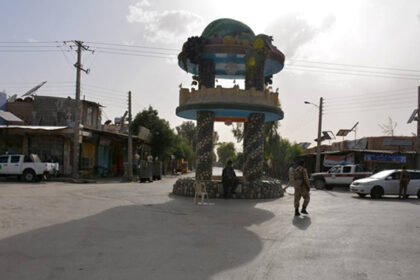RASC News Agency: The high-stakes negotiations between Pakistan and the Taliban, held in Istanbul under Turkish and Qatari mediation, have entered their third day without any meaningful progress, as both sides accuse each other of obstinacy, incompetence, and political bad faith. The discussions, intended to de-escalate mounting cross-border tensions and address Pakistan’s security concerns, have instead exposed the Taliban’s diplomatic ineptitude and habitual denial of responsibility for the violence emanating from Afghanistani soil.
According to Taliban-controlled state television, the Pakistani delegation allegedly lacks full authority to make decisions, prompting speculation that Islamabad’s representatives might abandon the talks altogether. The Taliban media narrative further accuses factions within Pakistan’s powerful military establishment of intentionally obstructing negotiations, while attempting to portray the Taliban delegation as the only party “committed to dialogue and realism.” Yet, beneath this self-congratulatory rhetoric lies the Taliban’s refusal to confront or even acknowledge the presence of Tehrik-e-Taliban Pakistan (TTP) militants operating freely across Afghanistan a denial that has become a central feature of their failing diplomacy.
Pakistani outlets, however, report a sharply contrasting picture. According to multiple media sources, the Taliban delegation has refused to sign any written agreement or accept even minimal obligations that might restrict militant operations within Afghanistan’s borders. Islamabad insists that hundreds of TTP fighters and their families are being sheltered under Taliban protection, using Afghanistani territory as a launchpad for attacks against Pakistani security forces a charge consistently dismissed by Taliban officials despite overwhelming intelligence evidence.
Diplomatic observers describe the Istanbul meetings as tense, unproductive, and politically hollow. Sources close to the talks told RASC that Taliban negotiators arrived with no new proposals, clinging instead to their familiar strategy of deflection and denial. “The Taliban appear to be more interested in public posturing than genuine problem-solving,” said one regional diplomat familiar with the proceedings. “Their so-called realism is merely a rhetorical shield to mask paralysis and internal disunity.”
The deadlock reflects the Taliban’s deepening isolation on the international stage. Since reclaiming power in 2021, the group has failed to gain formal recognition from any government and continues to operate more as a clandestine militant movement than as a responsible state actor. Its governance remains dominated by ideological rigidity, infighting, and economic collapse conditions that have rendered meaningful diplomacy almost impossible.
For Pakistan, the stakes are high. A surge in attacks attributed to the TTP has strained Islamabad’s patience, prompting calls within the Pakistani security establishment for direct action across the border if the Taliban continue to ignore their commitments. Pakistani officials have repeatedly invoked the 2020 Doha Agreement, under which the Taliban pledged that Afghanistani soil would not be used for attacks against other nations. Islamabad now demands that the same principle apply to its own security a request the Taliban seem unwilling or unable to honor.
Analysts warn that the Taliban’s failure to restrain transnational militancy risks transforming Afghanistan once again into a breeding ground for regional instability. “The Taliban’s denials are not fooling anyone,” said Dr. Farid Jamal, a South Asia security researcher based in London. “Their refusal to confront extremist groups within their borders is not diplomacy it is complicity.”
Meanwhile, Turkish and Qatari mediators are reportedly struggling to keep the dialogue alive. Despite multiple rounds of talks in Doha and now Istanbul, no substantial breakthrough has emerged, and both sides appear entrenched in their respective narratives. As Pakistan weighs its next move, diplomatic experts caution that continued inaction by the Taliban could invite unilateral military or economic retaliation, further isolating Kabul’s extremist rulers.
The collapse of the Istanbul talks serves as yet another reminder that the Taliban’s so-called diplomacy is built on deception, denial, and ideological rigidity. Their inability to engage constructively even with a neighboring state that once supported them highlights the extent to which the regime has become a liability to regional peace and a danger to its own people.
Under the pretense of “realism,” the Taliban continue to alienate potential partners while driving Afghanistan deeper into diplomatic isolation, economic despair, and global mistrust a self-inflicted fate that underscores the hollowness of their rule.






